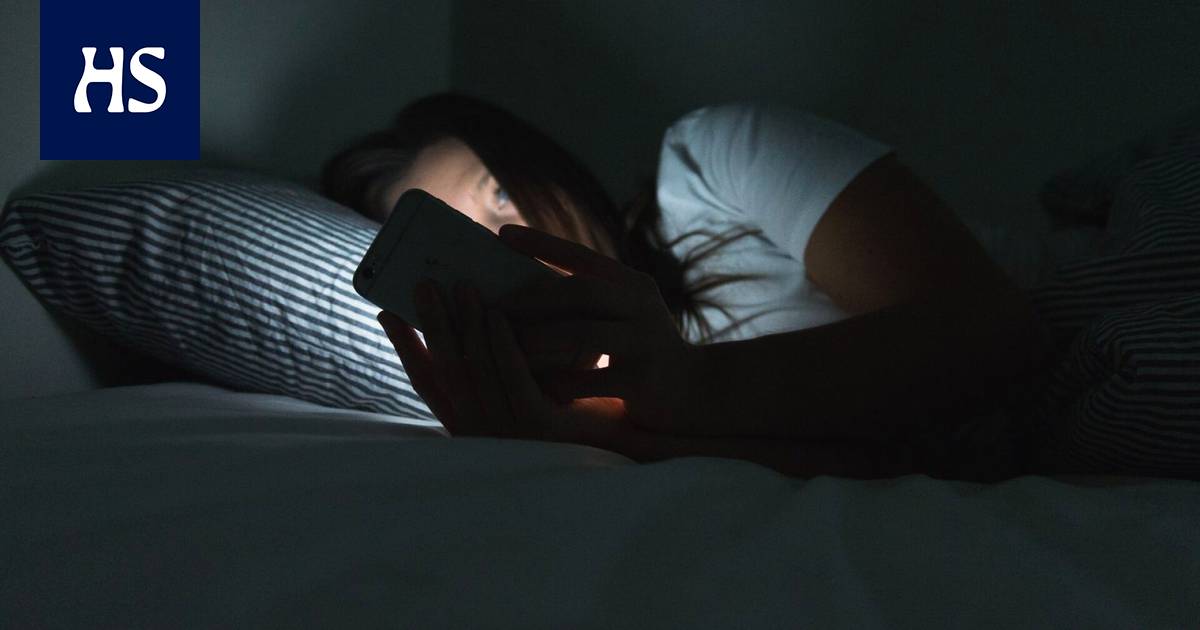A smartphone makes it possible to not have to leave the house even to go to the grocery store. In spite of it, it can cause life to freeze inside the four walls.
Part young people don’t want or can’t leave their homes because the phone is more important than the outside world.
This is very worrying, says the psychologist, psychotherapist and trainer Sirkku Ruutu.
“A smart device doesn’t teach you to stick to your sleep rhythm, persistently put on your shoes and go to the store and interact with the outside world. These skills need to be taught to some of the young people,” says Ruutu.
Ruutu is the owner and CEO of the training and development center Sirian. Siria trains brief therapists and also produces brief therapy services.
In Siria, many young people attend Kela-supported Nuotti coaching. Nuotti coaching is Kela’s low-threshold vocational rehabilitation. Education is free for 16–29 year olds.
“
Young people are blocked and locked up. The words get stuck in the throat and the speech is quiet.
Multi of the young people undergoing coaching spend a lot of time alone on the phone in their own room.
“We have considered with the Nuotti coaches how it affects the desire and ability to express one’s feelings or otherwise interact with others.”
The coaches have noticed that many of the young people are not used to dialogue.
“Among young people, there is a lot of a certain kind of inhibition or being locked up emotionally, as well as the inability to recognize one’s own feelings. The body is also somehow locked, the words get stuck in the throat and the speech is quiet. Self-expression is difficult, no matter how interesting the topic of the conversation is. The answers may be few or the young person says they don’t know.”
It seems that those who are used to interaction mediated by smart devices are also not used to the fact that you can get emotional warmth from the interaction.
It’s about is not only about the young person’s own actions or the vice of the smartphone. A parent’s physical and emotional presence, or lack thereof, has a big impact on how a child learns to express himself.
As early as 1970, an American developmental psychologist Edward Tronick did experiments on what happens if an adult does not respond to a baby’s attention seeking. It turned out that not reacting first leads to panicking and finally withdrawing from contact.
“The same phenomenon can be seen today in the fact that parents give small children a smart device as if to ‘take care’ of the child.”
It however, it is clear that smart device-mediated interaction is shortened. Liking and sharing, thoughtful expression and carefully chosen angles. This can also increase the young person’s pressure in a world where they already have a lot of pressure anyway. In reality, the interaction is much more, much more human.
“Risk-taking in relationships between people decreases and is not learned. Many young people may feel that they should be perfect all the time and that’s why they don’t take risks.”
Applications are often created to be addictive. This, too, can contribute to getting stuck on the couch at home.
“The phone gives immediate feedback. The body gets used to the likes and an addiction develops, where the immediate reward needs to be received more and more.”
Ruutu points out that addiction to smart devices is also very common for adults. Addiction can be seen in not being able to stop browsing the phone, even if it no longer brings pleasure.
However, the effect is different for a young person, because the brain is still developing.
“
We often start by cleaning out the 50 pizza boxes ordered at home.
Nototti coaching is intended for young people whose ability to function is substantially impaired.
Often, the aim is to help young people in a very concrete way. The coaches go to the young person and to their everyday life. We often start by cleaning out the 50 pizza boxes ordered at home.
“Education strengthens the feeling of competence. The young person is woken up and we go to the store, cafe or library holding hands. Let’s get to know possible study or internship places and help with networking. Let’s try to find a suitable rhythm for everyday life. Let’s be in front of people, even if the young person doesn’t feel like it and the hair is greasy.”
The smartphone joins the whole as an enabler: nowadays you don’t have to leave the house even to go to the grocery store.
“The ability to tolerate boring routines has decreased. A young person may have the experience of not being able to leave the house or take out the trash, even though they really can.”
It is frustrating that an enabler can turn into a limiter.
Part of those from coaching still live with their parents, some have moved to their own apartment. People with substance abuse problems, outcasts and those stuck inside four walls apply for coaching, even though the service is originally intended to support milder problems.
“Many have curled up in themselves. During the coronavirus pandemic, it may have been easier for many not to even physically go to school. On the other hand, some dropped out and didn’t even follow distance learning, but slept for hours.”
To remedy the situation, Ruutu does not recommend burying smartphones.
“I believe that you should pay attention to the use of the phone and talk to the young person about the use and the rules of the game. It is better for young people to regulate their use themselves and become aware of their own influence.”
In addition, it would be good to get the young people used to interacting again in schools, for example.
“It is important that young people also learn how to regulate emotions and how to face other people and how to be vulnerable and human.”
#Young #Completely #locked #young #people #arrive #reception #psychologist #explains #smart #devices #worst









